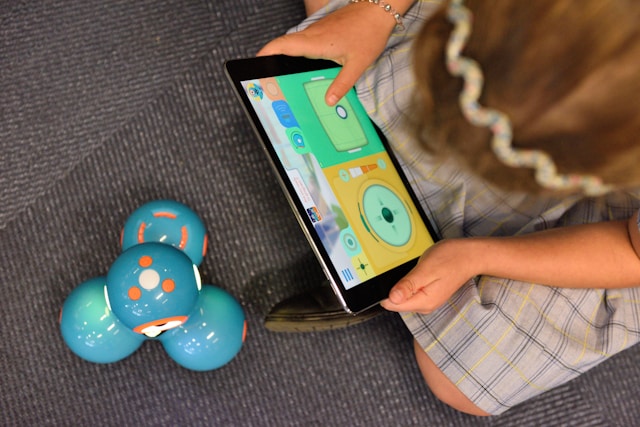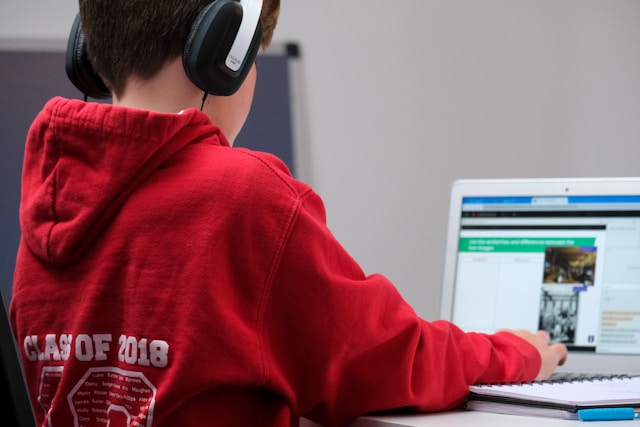
In an age where screens dominate our daily lives, it’s easy for children to become engrossed in gadgets and phones, sometimes at the expense of developing crucial life skills. With the allure of digital distractions, children might miss out on learning how to navigate real-world challenges effectively. As parents and caregivers, it’s our responsibility to ensure that, amidst the digital noise, children are equipped with the essential life skills they need to thrive. Imagine a future where your child not only understands the value of a healthy relationship with technology but also possesses the skills to tackle life’s complexities with confidence and resilience. By focusing on these fundamental skills now, we can help our children build a foundation that will serve them well into adulthood.
Emotional intelligence is a cornerstone of effective personal and professional interactions. Start by fostering self-awareness in your child—help them recognize their own emotions, strengths, and weaknesses. For instance, when your child struggles with a challenging task, guide them to identify and articulate their feelings.
Teach self-regulation by encouraging them to manage their emotions constructively. Simple techniques like deep breathing can help them handle stress and frustration.
Empathy is another vital component. Discuss emotions and experiences with your child to help them understand and share the feelings of others, enhancing their ability to build meaningful relationships. Also, work on developing social skills through role-playing various social scenarios, which will prepare them for real-life interactions and help them maintain positive relationships.
Problem-solving and critical thinking are essential skills for overcoming life’s challenges. Begin by nurturing analytical skills through activities that break down complex problems into manageable parts. For example, if your child is working on a project, help them organize their approach step-by-step.
Encourage creativity by inviting your child to brainstorm multiple solutions for problems they encounter. Discuss the potential outcomes of each option to develop their decision-making skills.
Engage your child in activities that require critical thinking, such as solving puzzles or playing strategy games. Ask open-ended questions to prompt deeper analysis and encourage them to explain their reasoning. For instance, inquire about their thoughts on a story’s ending or their favorite character and why they chose them.
Effective communication and collaboration are key to successful interactions. Focus on verbal communication by encouraging your child to express their thoughts clearly and concisely. Engage in conversations that require them to articulate their ideas and feelings.
Teach active listening by modeling how to pay full attention during conversations and respond thoughtfully. This skill will help them understand and connect with others better.
Involve them in teamwork activities, such as family projects or group games, to develop their ability to work cooperatively and achieve shared goals.
In a dynamic world, adaptability and resilience are vital. Help your child become flexible by exposing them to new situations and encouraging them to embrace change with a positive attitude. For instance, if plans change unexpectedly, discuss how to adapt and find alternative solutions.
Foster resilience by teaching your child to recover from setbacks. Share stories of overcoming challenges and discuss strategies for persevering through difficulties.
Understanding money management is crucial for future financial stability. Start by teaching your child about currency and the basic concepts of saving and spending. Activities like running a lemonade stand can provide practical experience in handling cash and making change.
Guide them in creating and sticking to a budget by setting simple financial goals, such as saving for a toy or planning for a family outing. This practice will instill valuable habits and a deeper understanding of financial responsibility.
Effective time management helps children balance their responsibilities and activities. Establish routines by creating a daily schedule that includes time for schoolwork, chores, and leisure activities. This structure teaches them the importance of managing time efficiently.
Teach them to divide tasks into manageable parts. For example, if they have a large project, help them break it down into smaller steps with deadlines for each. This method reduces overwhelm and enhances their organizational skills.
By integrating these essential life skills into everyday activities, we can prepare our children for a future filled with opportunities and challenges. These skills will help them approach life’s complexities with confidence, resilience, and a proactive mindset, setting the stage for a successful and fulfilling life.


